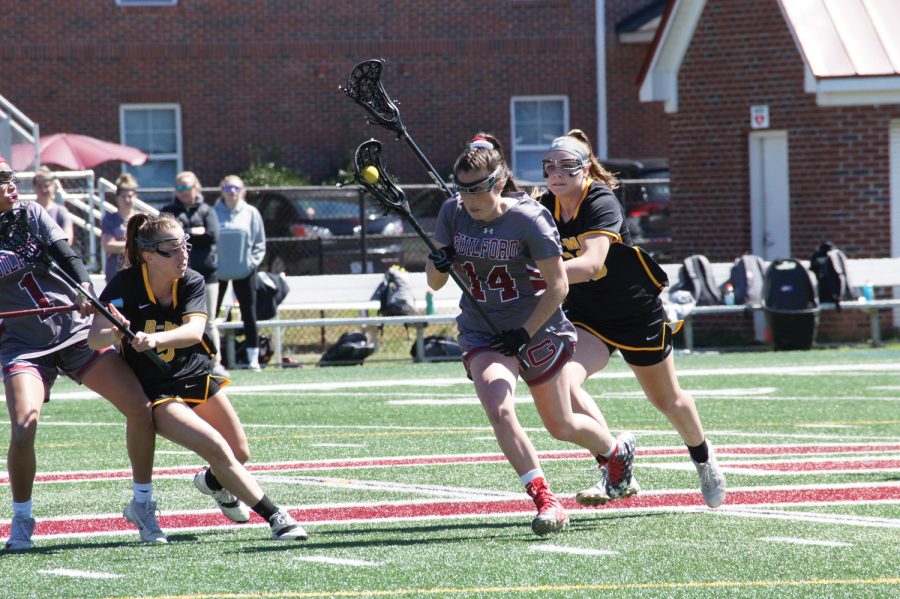Over the past years, the admissions rates for top colleges and universities have generally decreased. With more and more students applying to and limited spaces in these prestigious institutions, admissions officers have no choice but to reject seemingly perfect students.
Unsurprisingly, rejection doesn’t sit well with many students and, thus, is a topic of controversy spread across the nation. This is especially true for many Asian-Americans who blame affirmative action, claiming that they were rejected in favor of less qualified students.
There is some basis for the complaints about the influence of race in college admissions.
A story in the LA Times backed by research from Princeton University shows that African-American applicants at Princeton essentially had 230 points added to their SAT score while Hispanic students received 185. On the other hand, Asians were penalized 50 points.
Brian Taylor, the director of Ivy Coach, urges his Asian-American clients to try to appear “less Asian” in their applications.
Indeed, if it weren’t for affirmative action, top universities might soon become majority Asian. For example, one of the top-ranked universities in the nation, University of California Berkeley, has race-blind admissions and admitted 5,017 Asian-Americans out of 12,813 admissions.
However, the biggest problem behind the reasoning of many angry Asian students and their parents is that they are looking at “qualifications,” such as SAT scores, GPA and extracurricular activities as justification for their admissions to top universities.
At surface value, it is indeed unfair for a student with a perfect SAT score, perfect GPA and stellar extracurricular achievement to be rejected in favor of a less perfect student. But, when you dig deeper, affirmative action seems to become more and more reasonable.
All-important statistics like GPA and SAT score are easily influenced by money. A chart from The Washington Post shows that students from families that make over $200,000 a year score, on average, 388 points higher on the SAT than students from families that make less than $20,000 a year.
In fact, the average SAT score for each wage bracket is higher than the average SAT score for every lower-wage bracket.
Essentially, wealthier families have access to resources like tutors and specialized classes that poorer families cannot afford.
Unfortunately, Hispanic and African-American families make up a large portion of the lower-wage brackets in America.
Per The Washington Post, the median annual salaries of Mexican and Puerto Rican families in 2014 are $38,000 and $36,000 respectively. African-American families earn the least, with a median yearly salary of $35,000. In contrast, the national median annual salary is $53,657 and that of Asian-American families is over $74,000.
Thus, the massive difference between salaries of Asian families and minority families should throw out the argument of qualifications. Instead, it seems like admissions processes are looking more at an applicant’s personality and talent rather than raw stats.
As an Asian-American who will be attending college soon, I know all too well the mindsets of many of my peers. Many of us are name driven, attracted to the prestige and pride rather than to the education at these top schools.
In short, Asian-Americans appear too plastic and insincere in their college applications. Without a doubt, admissions officers see straight through their façade.
According to The Economist, Michael Wang, a student in California with a 4.67 weighted GPA, perfect ACT score and vast array of talents ranging from piano to math, was rejected from Stanford and every Ivy League school except for the University of Pennsylvania.
He adamantly insists that it’s his race that got him rejected and has filed complaints against two universities that rejected him.
Wang, like many other Asian applicants, has the perfect application at face value but doesn’t get the full picture.
Wang is like a machine, but colleges and universities are looking for humans. When he filed those two complaints, he embodied one of the biggest problems preventing more well-qualified Asian-Americans from being admitted to these top universities: arrogance. He believed that he was entitled to a spot in these prestigious universities, especially over students with a less flashy resume.
Although Asian-American students are commonly viewed as results-oriented and overzealous about academics, there are many who veer from those generalizations. In fact, many Asian-Americans who do get accepted into top universities deviate from typical stereotypes.
Nobody can doubt that Asian students have some of the best statistics in the nation, but given the financial success of Asians in America, perfect stats aren’t as impressive. In the end, it all boils down to who deserves it, not who is the most educated.









Walter Hassell • Dec 9, 2016 at 5:31 pm
So if an Asian man works hard 80 hours/week for decades to amass enough wealth to pay to put his children through any Ivy League School of their choice, you’re telling me his children (and this man) should be penalized on the BASIS of their wealth? Sorry, but this is why “equality of outcome” is a laughable goal. It might sound nice on paper, but it’s a tyranny in practice.